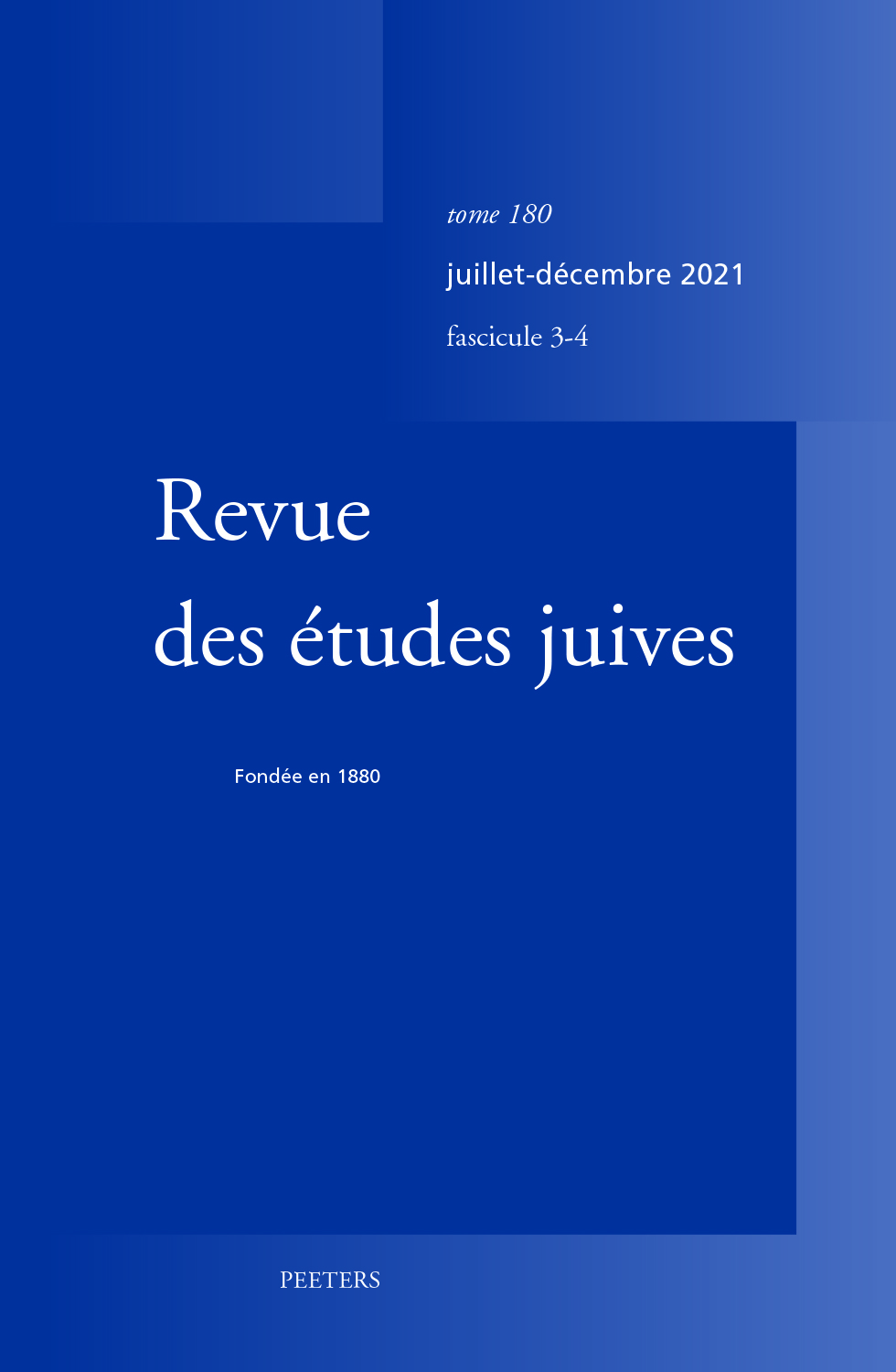 previous article in this issue previous article in this issue | next article in this issue  |

Preview first page |
Document Details : Title: Who were the Libertini, Mentioned in the Acts? Subtitle: A New Historical Approach Author(s): ESCOJIDO, Yaël , FRIEDHEIM, Emmanuel Journal: Revue des Études Juives Volume: 183 Issue: 3-4 Date: juillet-décembre 2024 Pages: 345-382 DOI: 10.2143/REJ.183.3.3293866 Abstract : In this paper, we propose to explore the identity of the Libertini – a Latin term, possibly implying some kind of connection with former slaves – who built their own synagogue in proximity to the Jerusalem Temple (Act. Ap. VI 9). In the two initial stages of this study, we examine whether a statement establishing connection between former slaves and synagogues is supported by historical evidence or by religious imperatives. Actually, there is no evidence of former slaves being unable to attend the synagogue of Jews who had always been freemen. On the contrary, Jewish masters and their former pagan slaves seem to attend the same synagogue. In the final section, we attempt to define the identity of the Libertini Synagogue’s members in Jerusalem. The comprehensive approach we propose to adopt in this study, to explain why Jews of the Hellenistic Diaspora designated their synagogue in Jerusalem, using a titular name indicating civic status, encompasses a wide range of meanings, defining Libertini as new Roman citizens, regardless of any original status, former slave or peregrine. L’objectif de cet article est de déterminer l’identité des Libertini – terme latin impliquant un certain lien avec d’anciens esclaves – qui ont construit leur propre synagogue à proximité du Temple de Jérusalem (Actes des Apôtres 6, 9). Dans ses deux premières parties, nous examinons si l’existence de synagogues d’affranchis est confortée par des preuves historiques ou des raisons religieuses. En fait, rien ne prouve que les esclaves affranchis fréquentaient des synagogues différentes de celles des Juifs qui ont toujours été libres. Au contraire, ils semblent avoir fréquenté la même synagogue que leurs anciens maîtres. Dans la dernière partie, centrée sur la synagogue des Libertini à Jérusalem, nous proposons de ne pas nous limiter à l’interprétation courante du terme libertini mais de le comprendre dans un sens plus large, où il désigne des nouveaux citoyens romains indépendamment de leur statut d’origine. Cette nouvelle approche pourrait expliquer pourquoi certains juifs de la diaspora hellénistique, à Jérusalem, ont indiqué leur statut civique à travers le nom de leur propre synagogue. |
|


